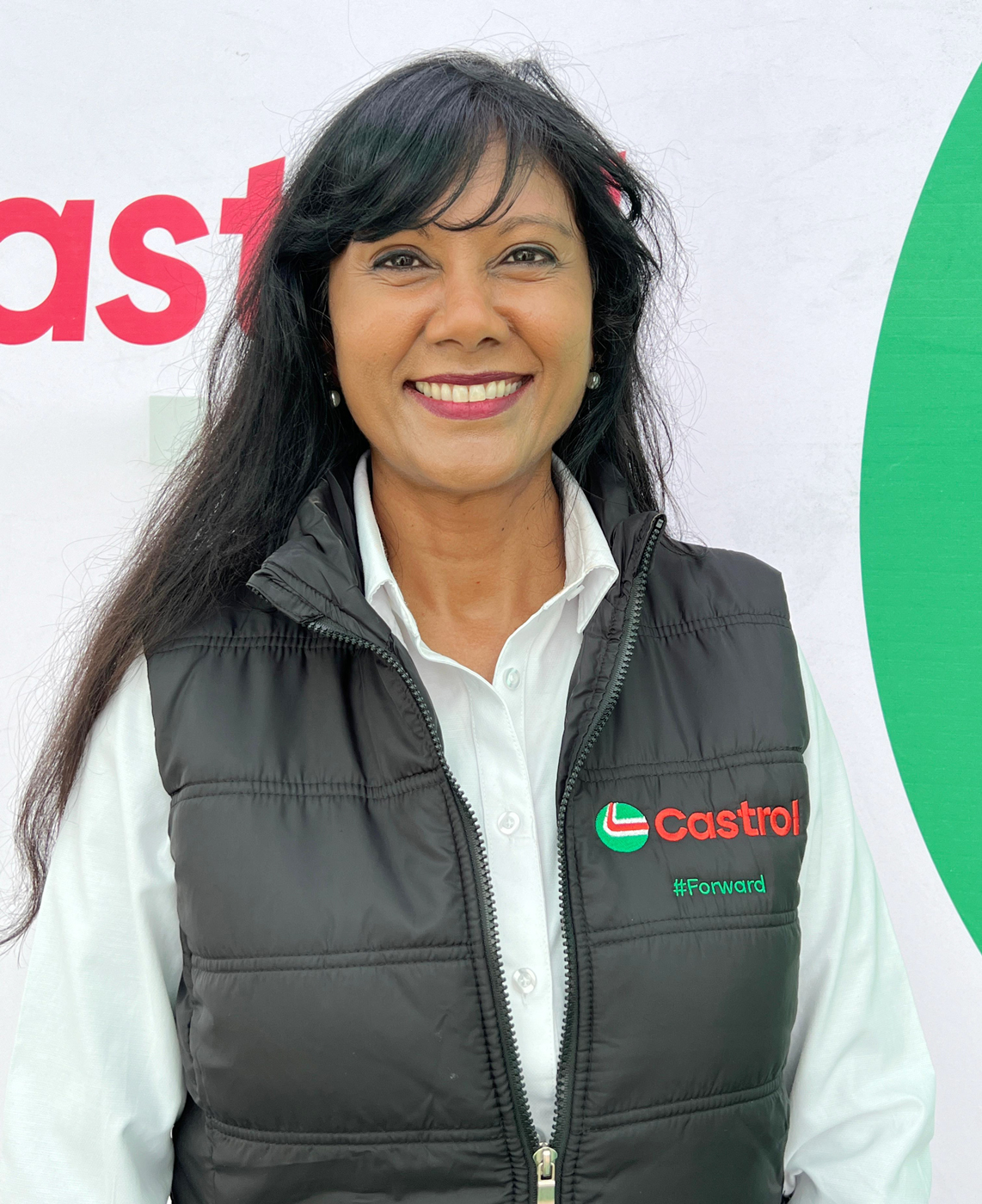Futuristic tradition
Futuristic tradition
Jenny Heyes, marketing director at Castrol Africa, seems like the perfect fit for a venerable brand with its eyes firmly fixed on the future.
Developing lubrication fluids for highly sophisticated vehicles requires technical wizardry of the highest order. It follows that the person mandated to market one of the industry’s most respected lubricant brands should ideally have the ability to understand the issues and speak credibly to fleet managers and vehicle owners. Technical knowledge isn’t enough, though; it must be combined with marketing flair to create a relatable brand.
There’s an added challenge when it comes to Castrol: you’re talking about a household name that, through its iconic “Boet en Swaer” advertising campaign, managed to pull off the feat of humanising motor oil through humour. How does one take such an established brand into the future without squandering its existing equity?
Fulfilling that job description is the definition of a tall order – luckily, there are unicorns who combine technical knowledge and expertise with marketing flair! With a mechanic father, Heyes grew up becoming conversant with the intricacies of the internal combustion engine. Her working career started off as an engineer at a well-known paper mill in Gauteng, where she was involved in optimising processes and delivering cost savings. After several years, she joined a starch and glucose manufacturer, switching to a technical sales role.

“I’m a technical person, but above all I enjoy working with people. I realised I wasn’t suited to playing a primarily engineering role,” she says with a laugh. Heyes credits a stint working for one of the big petroleum players as her first exposure to the world of lubricants, while further time with another petroleum giant – both in South Africa and in Australia – exposed her to fuels. In the latter position, she worked with distributors across Africa, giving her the foundation for an in-depth understanding of the African market.
Along the way, she picked up a marketing qualification from Unisa, which she says she enjoyed enormously. Other highlights from her wide-ranging career include marketing positions in the lighting and logistics space.
Understanding the role
With hindsight, it almost seems as though Heyes was always preparing for her current role, which she took up in 2022 when Covid-19 protocols were still in place. “On my first day at work, I was virtually the only person in the building,” she says.
As already noted, taking a long-established brand into an uncertain future presents a certain challenge. It’s one that Heyes clearly relishes, although she does point out that the overall direction is determined by the global entity – it’s up to her to ensure it’s interpreted for the African markets. “What I like about my work is that it’s not conventional marketing, which can tend towards fluff. With a brand like Castrol, it’s not about promotions – it’s all about understanding the product in depth, and then relating it to what your customers want or need,” she says. “In that way, you can create a pull… and getting that right is very exciting.”
A huge advantage is that the Castrol brand is so well known across Africa. Its superior performance is highly prized given the continent’s plethora of battle-stained cars and trucks, and the tough road conditions they have to deal with. A lot of the company’s energy is spent doing trials with fleet managers to demonstrate the benefits of superior lubricants.
Unlike many of her peers across various industries, Heyes knows the continent, and feels she is well placed to identify both opportunities and challenges for Castrol. She also has the benefit of the insight from local product managers across the region.
“Road transport remains our lifeline, and a product that will keep vehicles on the road for longer is the fleet manager’s dream, and certainly justifies a slight cost premium if one takes the long view,” she notes. “It’s showing the difference between taking a long-term view and the short-termism that sees everything in terms of price. Essentially, we have to show vehicle owners that we are their partner in managing their assets better.”
Heyes believes a significant opportunity lies in Africa’s young and rapidly growing population. This youthful energy fuels dynamic economies and offers a chance to engage with an up-and-coming consumer group. “We need to engage with them to ensure that when they get their first car, they choose Castrol as their lubricants partner,” she says. “It’s all about building that connection.”
The challenges that come with an established brand are perhaps illustrated by the GTX brand’s potency across Africa. How to capitalise on that brand recognition to tell a fuller story remains something of a conundrum. “Castrol is much more than an engine oil; there are all the other lubricating fluids and, of course, there is the looming conversion to electric, something that will see engine oils disappearing and the emergence of a new stable of lubricants,” says Heyes. “The same rigorous research and care that went into developing GTX goes into all our products.”
It’s quite a tightrope to walk, but if anybody can do it, Heyes surely can.
Published by
Focus on Transport
focusmagsa




